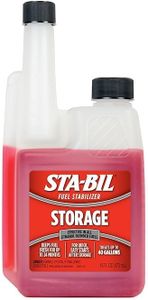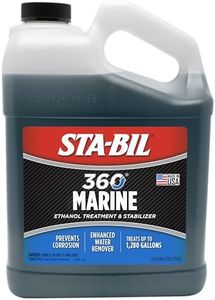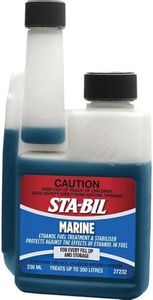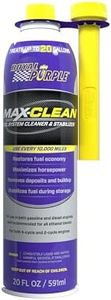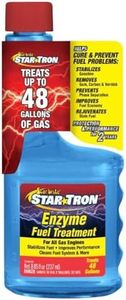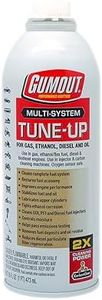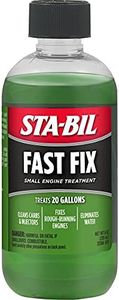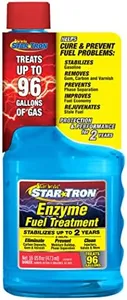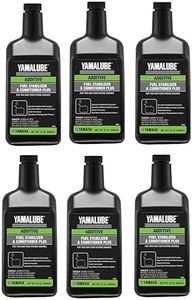We Use CookiesWe use cookies to enhance the security, performance,
functionality and for analytical and promotional activities. By continuing to browse this site you
are agreeing to our privacy policy
10 Best Gas Stabilizers
From leading brands and best sellers available on the web.By clicking on a link to a third party's website, log data is shared with that third party.
Buying Guide for the Best Gas Stabilizers
Choosing the right gas stabilizer can help protect your gasoline-powered equipment from fuel degradation, prevent engine problems, and save money on repairs. Gas stabilizers work by slowing the oxidation and breakdown of fuel, especially during storage or seasonal downtime. When shopping for a gas stabilizer, it’s important to consider the type of equipment you own, how long you typically store fuel, and how often you use your machines.Concentration & DosageConcentration refers to how much of the stabilizer you must add to a certain amount of fuel. This is important because a higher concentration can mean you need less product per gallon, which is convenient. Dosage values are usually listed as ‘treats X gallons per ounce’. If you store large amounts of fuel or maintain several machines, a more concentrated product may be preferable to reduce how much you have to measure out or purchase. For infrequent use or small quantities of fuel, a less concentrated product will work just as well and may be easier to measure for small batches.
Storage DurationStorage duration is the length of time a stabilizer can keep your fuel fresh. This is a crucial spec for anyone storing fuel for emergency generators, lawn equipment, or seasonal vehicles. Gas stabilizers are usually labeled for storage ranges from several months up to two years. If your equipment sits unused for months at a time or you buy fuel in bulk, pick a stabilizer designed for long-term storage. If you use your machines regularly, a product with a standard duration is usually enough.
CompatibilityCompatibility means whether the stabilizer can be safely used with all types of gasoline or with other additives, like those containing ethanol. This is important because different engines and fuels may require different stabilizer formulas, especially when it comes to ethanol-blended fuels which tend to degrade faster. Make sure the product is clearly marked for the type of fuel or engine you use—whether that’s regular unleaded, E10, E15, or even two-stroke engines—so you can avoid damage or reduced performance. If you use equipment that runs on non-standard fuels, double-check compatibility.
Ease of UseEase of use refers to how straightforward the product is to measure, pour, and mix into your fuel. Some stabilizers come with measuring bottles or easy-pour spouts, making them more convenient to use. This spec matters most if you want to avoid spills and guesswork, especially if you only treat small fuel containers or have limited workspace. For anyone uncomfortable with measuring precise amounts or dealing with messy liquids, look for products with built-in measurement features.
Residue and Engine CleanlinessSome gas stabilizers include cleaning agents that help keep your fuel system and engine clean by reducing gum, varnish, or carbon deposits. This can be a useful feature if you want some preventative maintenance along with fuel preservation, or if you operate older equipment. However, if you already use separate fuel system cleaners or your equipment is new and regularly maintained, these features may be less important for you.
